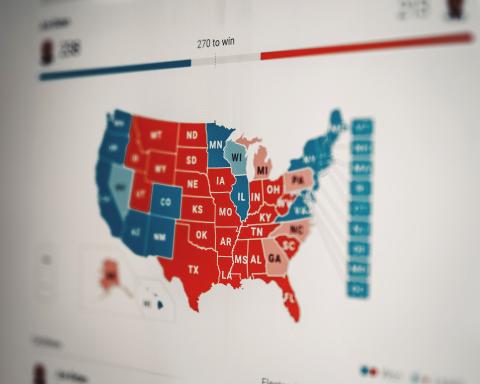Regardless of how one feels about Robert F Kennedy’s political positions or presidential candidacy, nationwide surveys continue to show that he could have the biggest showing of any alternative choice in a presidential race than any candidate since Ross Perot in 1992.
What’s more, a new poll shows that despite the party narrative that he will cost Biden or cost the GOP nominee the election, he pulls from both sides so evenly that it wouldn’t affect the outcome of the election.
Monmouth University released a poll which indicates that 1-in-5 Americans are considering voting for Kennedy. This lines up with other recent polls that show his favorability around the same numbers. However, his exact impact on the race is uncertain.
When RFK, a candidate whose positions are so broad they have attracted some MAGA supporters and some progressives, is added to a hypothetical rematch between Biden and Trump, he pulls 14 percent support from each of them.
“We are seeing a pretty even contest so far. This may be the case whether or not Kennedy is running, at least at this early stage before voters have really tuned in to the alternatives,” said Patrick Murray, director of the independent Monmouth University Polling Institute.
Republicans and Democrats regularly rely on the scare tactic that a vote for an independent or third-party candidate is actually a vote for the opposing major party, which will ruin the country and usher in a devastating future.
This is what happens when an election model is manipulated over several decades by changes to election law and rules to ensure elections are treated only as a zero-sum contest between the Republican and Democratic Parties.
The stakes have no limit, and the more polarized the parties become, the stronger the hyperbole turns in the overall election narrative. There are now TikTok videos out there that tell voters if they don’t vote one way, they will have blood on their hands.
A quick note to anyone who spews this type of partisan propaganda: You aren’t winning over anyone. If anything, you are convincing voters to sit out. You can’t hold a gun to people’s heads and tell them you support democracy at the same time.
At the end of the day, the parties want people to believe that voters, not their candidates, should be blamed when their nominee fails to win an election. It highlights the lack of accountability in our system that candidates are not expected to appeal to more voters.
Research has disputed the claim that independent and third-party candidates cost either major party an election. Ross Perot, for example, may have pulled so evenly from George HW Bush and Bill Clinton in 1992 that the outcome would have been the same if he wasn’t in the race.
But his presence in the race gave voters something to think about, and additional choice. The debate between Perot, Bush, and Clinton is – to this day – one of the highest rated and most watched presidential debates in modern US history.
Voters want options in elections, just like with anything else in their lives, and the major party candidates have never polled worse among US adults. On top of record-high unfavourability numbers, the Monmouth poll shows that nearly half of respondents said they definitely won’t vote for Biden or Trump (if, indeed, he is the GOP nominee).
Thirty-one percent (31%) of respondents said they would definitely vote for Biden and 28% said they would definitely vote for Trump in a hypothetical two-man race. This does not even factor in RFK.
Is it possible the 2024 presidential election will look like the 1992 election? Current polling data from multiple sources suggests yes. It’s too early to tell definitively one way or the other, but it seems like more Americans than ever want to break a cycle that is doing more harm to elections than good.
